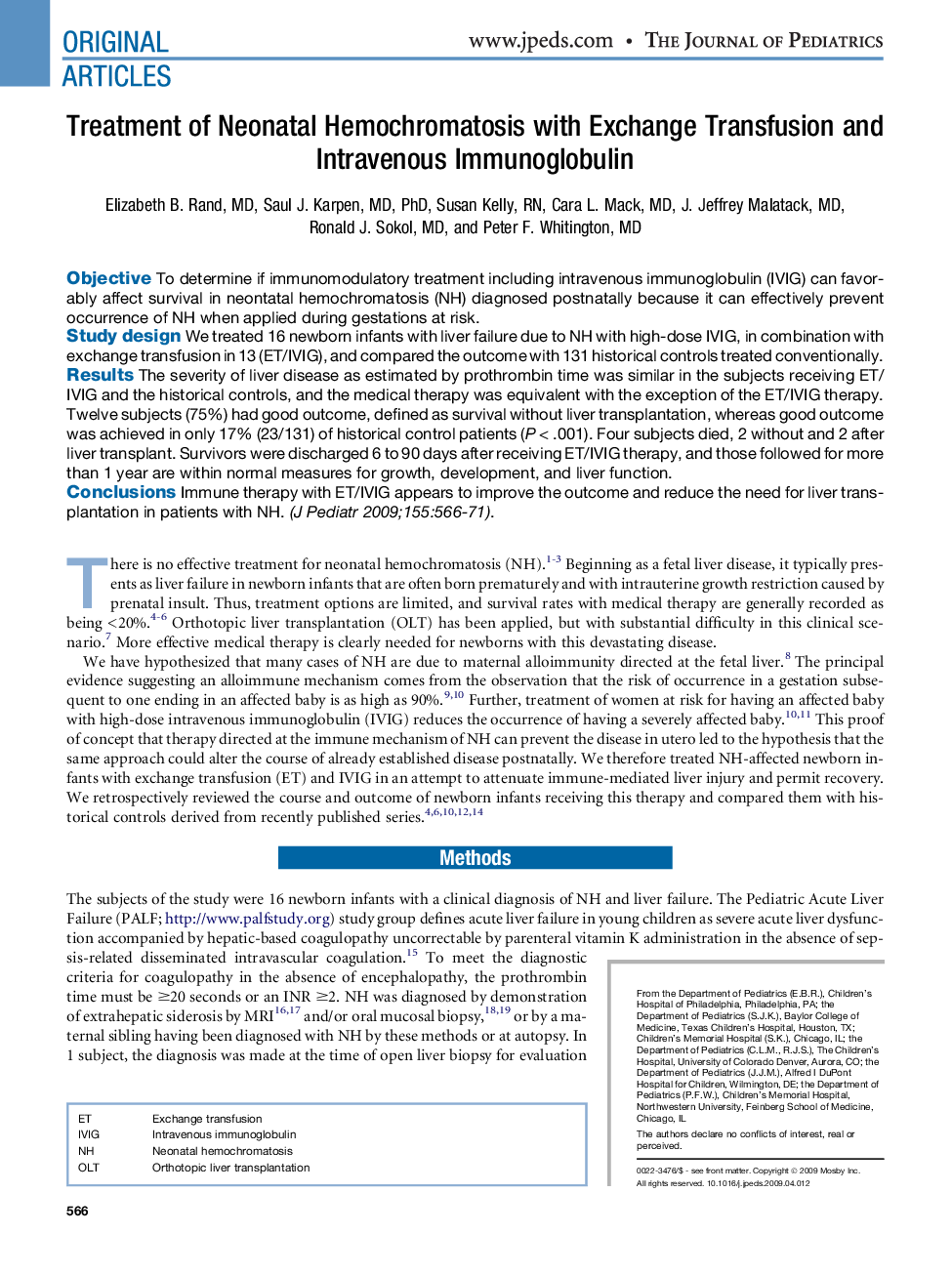| Article ID | Journal | Published Year | Pages | File Type |
|---|---|---|---|---|
| 6225925 | The Journal of Pediatrics | 2009 | 7 Pages |
ObjectiveTo determine if immunomodulatory treatment including intravenous immunoglobulin (IVIG) can favorably affect survival in neontatal hemochromatosis (NH) diagnosed postnatally because it can effectively prevent occurrence of NH when applied during gestations at risk.Study designWe treated 16 newborn infants with liver failure due to NH with high-dose IVIG, in combination with exchange transfusion in 13 (ET/IVIG), and compared the outcome with 131 historical controls treated conventionally.ResultsThe severity of liver disease as estimated by prothrombin time was similar in the subjects receiving ET/IVIG and the historical controls, and the medical therapy was equivalent with the exception of the ET/IVIG therapy. Twelve subjects (75%) had good outcome, defined as survival without liver transplantation, whereas good outcome was achieved in only 17% (23/131) of historical control patients (P < .001). Four subjects died, 2 without and 2 after liver transplant. Survivors were discharged 6 to 90 days after receiving ET/IVIG therapy, and those followed for more than 1 year are within normal measures for growth, development, and liver function.ConclusionsImmune therapy with ET/IVIG appears to improve the outcome and reduce the need for liver transplantation in patients with NH.
